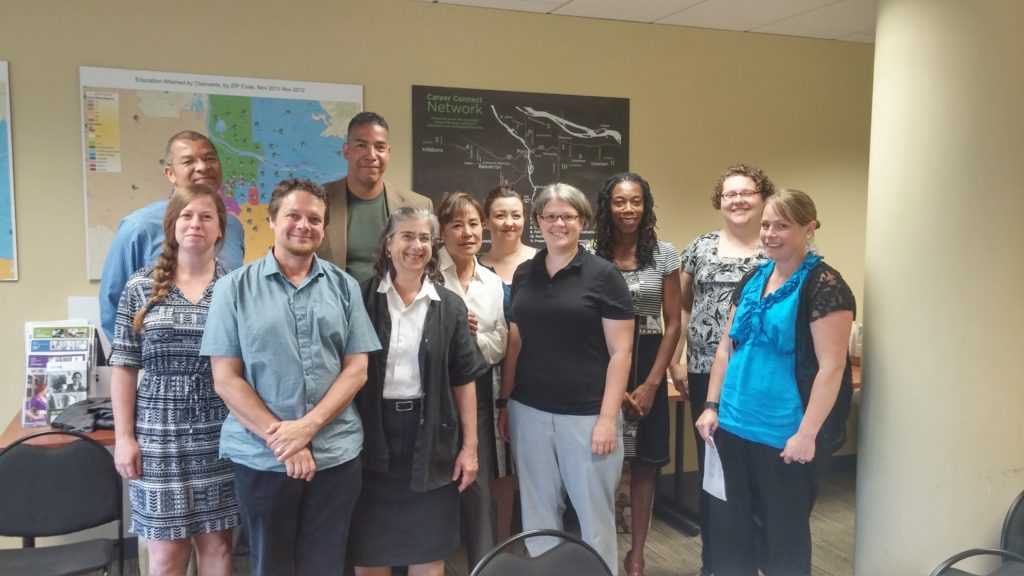Oregon Tradeswomen, Women’s Bureau Hold Roundtable on Female Retention in Trades

From top left: Steve Simms, Lili Hoag, Larry S. Williams, John Gardener, Connie Ashbrook, Betty Lock, Paloma Sparks, Meghan Moyer, Pat Daniels, Tiffany Thompson, Sara Gourley
Portland-region workforce development organizations were honored to host Women’s Bureau Region X Regional Administrator Betty Lock this week for a roundtable discussion on retention of women in trades apprenticeships. The group came together to discuss a persistent and vexing problem in the construction industry: A full 65 percent of women fail to complete their apprenticeships, a rate substantially higher than men’s termination rate of 35 percent.
The robust discussion was informed by experts in the field from the Oregon Bureau of Labor and Industries, Worksystems, Inc., the Northwest College of Construction, Constructing Hope, Family Forward Oregon, and Oregon Tradeswomen, Inc., who convened the meeting. Among the factors that contribute to the disparity in retention rates discussed by the group were jobsites and employers that remain hostile toward women, the fact that tradeswomen are dispatched to fewer work hours than their male apprentice counterparts, and the continued lack of supportive services that are tailored to the specific needs of workers in the construction industry.

Betty Lock hears from participants about challenges faced by female apprentices in the trades
Solutions offered by the group included emphasizing accountability and enforcement on projects that fail to meet diversity hiring targets, working with contractors and employers to stimulate demand for female workers, and tailoring supportive services to suit women working in the industry that have children. Many in attendance emphasized the importance of networking, noting that women and men of color are not being mentored into a network that guarantees them more access to the jobs that help them succeed in apprenticeship. Oregon Tradeswomen’s Advocacy Program Manager also offered a summary of its work on the Green Dot bystander intervention program, which could be employed on construction jobsites to reduce harassment of female and minority workers.
We look forward to continuing this discussion with our regional partners and the Department of Labor, as well as working together to refine and implement the best of these strategies in the future. Oregon Tradeswomen wishes to thank our regional partners, Betty Lock, and the Women’s Bureau for their commitment to women in the trades and for coming together to discuss this critical issue!